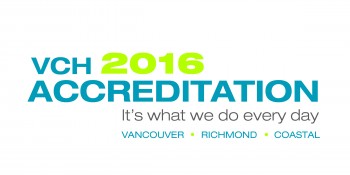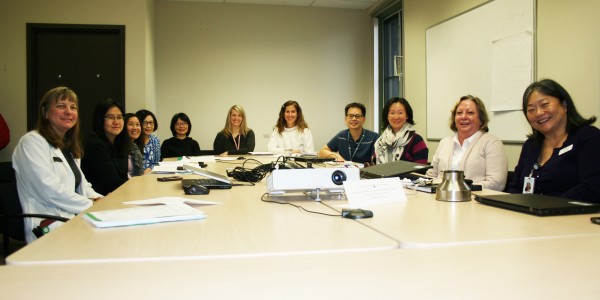Prescribing the best care
Ever wonder how health care professionals keep track of all of a patient’s medications? Well, thanks to the Medication Reconciliation (MedRec) working group, there is a formal, systematic process in which health care professionals partner with patients, residents and clients to ensure accurate and complete transfer of medication information at interfaces of care. In simple terms, the MedRec process involves having a conversation with the patient, family member and/or care giver that focuses on verifying what medications the patient actually takes and how they take them.
The goal is to reduce adverse events due to medications by implementing structured medication reconciliation processes at transitions of care. It involves the collection and documentation of a Best Possible Medication History (BPMH) – the “cornerstone” of the MedRec process.
As a part of VCH-wide Accreditation 2016, the VCH MedRec Leads are working to ensure we meet the Tests of Compliance to the Required Organizational Practices for the care and safety of our patients.
“I’m really proud of the work we’re doing,” says Karin Trapnell, MedRec Working Group lead and regional project manager. “We’ve done a lot to support the implementation of MedRec at transitions of care, admission, transfer and discharge, across the organization.”
As Accreditation 2016 approaches, the group is doing much across the organization to support MedRec in acute care, community care, residential care, mental health care and ambulatory care – ultimately the goal is to ensure prescribers have the patient’s most current and comprehensive medication information prior to writing new medication orders.
“It’s a huge job,” says Karin, “but so worth it. Ultimately MedRec allows for reliable high quality care and improved practice environments by providing a clear, standardized process for capturing and communicating a client’s medication history from admission through discharge. “
Medication Reconciliation has been shown to be a powerful strategy to reduce adverse medication events and has been designated as a Required Organizational Practice by Accreditation Canada since 2005. The current standards require that the organization reconcile all patients’ medications at all transition points and communicate the reconciled medications to the next care provider within or outside the organization.
VCH-PHC MedRec team leads
Sally Chai – Medication Safety Pharmacist – North Shore/Coastal
Jo Chang – Coordinator of Residential Pharmacy, UBCH – Koerner Pavilion (retiring)
Michael Duchnych – MedRec Project Manager – Vancouver Acute & Community
Maylene Fong – Manager – AOA & PC, Evergreen CHC
Deb Halket – Practice Consultant, Professional Practice and Nursing (PHC)
Nadine Jones – Practice Initiative Lead, Professional Practice, North Shore/Coastal
Patty Leong – Coordinator of Residential Pharmacy, UBCH – Koerner Pavilion
Melissa Lo – Medication Safety Pharmacist, PHC
Karen Madayag – Professional Practice Initiative Lead, Richmond
Shelley Novak – Medication Safety Pharmacist, Vancouver General Hospital
Jamie Simpson – Team Lead (Clinical) for IMITIS – Primary and Community Care
Mary-Ann Taylor – Practice Initiative Lead, Professional Practice, North Shore/Coastal
Karin Trapnell – Regional Project Manager- Medication Reconciliation (VCH/PHC); Director-Clinical Supplies and Equipment (VCH)
Amy Wai – VCH/PHC Regional Medication Safety Coordinator
Mark Wu – Medication Safety Pharmacist, Richmond

